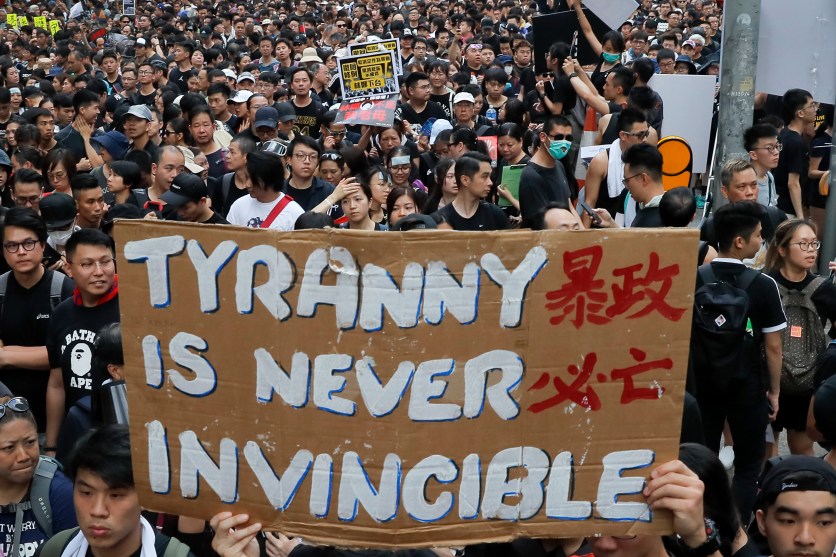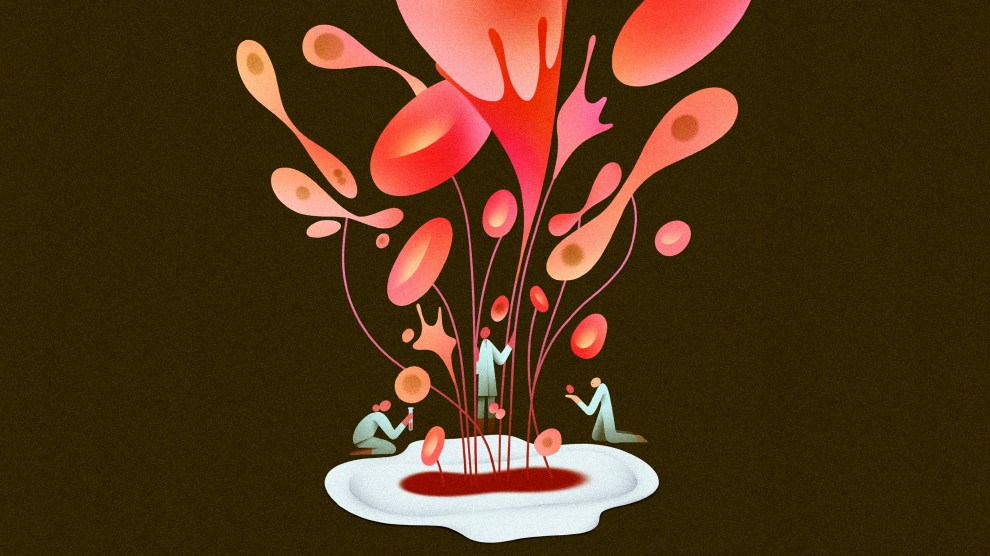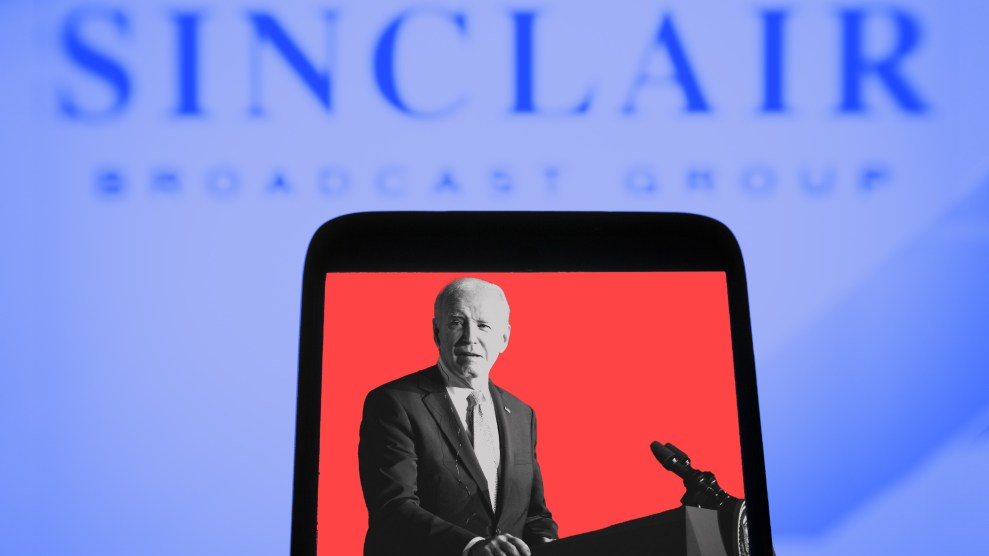
Tens of thousands of people march through the streets of Hong Kong in protest to an extradition bill on June 16, 2019.Kin Cheung/AP
Welcome to Recharge, a weekly newsletter full of stories that will energize your inner hellraiser. See more editions and sign up here.
Who wanted to legalize the seizing of people off the streets and their forced removal to mainland China?
Not the people of Hong Kong, who have rallied to make it resoundingly clear that they want to preserve their democracy and human rights, which have greater protections than those of people in mainland China.
In astounding demonstrations, people in Hong Kong forced the former British colony’s unpopular leader, Carrie Lam, to delay indefinitely an extradition law that would have permitted the forced relocation of its people to mainland China. Lam apologized to her constituents Saturday and again on Sunday, when organizers said nearly 2 million people swelled the streets to call for the permanent shelving of that proposed law—and for the resignation of the pro-Beijing Lam.
“One week ago, our future was dark. But now I can see so many people here supporting our protest,” Casper Ng, a 22-year-old student at the Hong Kong Design Institute, told the Los Angeles Times on Sunday. “So I think our future will be bright. But we need to keep fighting for our democracy and freedom.”
The protests, during which police used rubber bullets and tear gas against protesters, shook the Asian financial center, which switched from British to Chinese leadership in 1997 with a promise to maintain democracy and autonomy from Beijing.
The protests also heartened people opposed to authoritarian leadership worldwide.
“They want to send a message to Beijing,” Willy Lam, an adjunct professor at the Chinese University of Hong Kong, told the New York Times. “If Beijing wants to do something that really infringes upon Hong Kong’s basic value, Hong Kong people will turn out in force, again and again, to pour out their discontent.”
Here are some more Recharge stories to get you through the week:
- Not about me. Leanne Carrasco could have had a graduation party. She didn’t want one. Instead, she brought 90 pizzas to homeless women and children at a Houston shelter. “If I’m able to get to the people, that will last more than one day,” says Carrasco, a frequent volunteer who also distributed hygiene kits at the Star of Hope center. She says she wants to become a nurse and give back to her community. (KTRK)
- Speaking of pizza. A Canadian pizza shop is asking customers to pay it forward, a slice at a time. “If somebody comes and asks for food, we cannot deny them, because they are hungry,” says Vikas Sanger, owner of Winnipeg’s SFC Pizzeria. “But I just opened a new restaurant, so I cannot afford to [give] everything free.” Instead, customers have been giving a buck for those who cannot pay, and putting up sticky notes with a blessing on the wall. Those without means can choose which blessings they want—with a free slice as well. (CBC)
- The last lawn mowed? Back in July, we profiled Rodney Smith Jr., who traveled the country mowing lawns for veterans, single moms, and elderly people. Last week, the Alabama man finished off his latest nationwide tour by mowing in Hawaii, his 50th state. Smith says his biggest accomplishment since starting his effort in was inspiring 400 young people to mow for neighbors who need a hand. “My true purpose,” Smith says, “is helping people.” Of the vets—many struggling—whose lawns he’s cut, he says: “If they served for our country, we should step up for them.” (ABC News)
- A place for peace. The library has two parking lots and two entrances, one on the US side and one on the Canadian side of the border. The frontier runs through the library, and no visas are required. In December, I wrote about how the Haskell Free Library and Opera House has become an unlikely gathering place for families divided by a US travel ban on visitors from many Muslim nations. Now the Vermont-Quebec library—and its reunions—star in an art exhibition in a Washington, DC, gallery. “Neighboring Towns” includes a video of the library’s interior, accompanied by the voiceover narration of an Iranian-born Canadian, who, with his parents, met there with his sister, who lives in the United States. (Washington Post)
I’ll leave you with this sunset from Minnesota’s Voyageurs National Park, courtesy of the Interior Department’s Twitter feed. Have a great week ahead!
You're going to love watching the sunset from your boat at Voyageurs National Park. Pic by Aaron Billberg (https://t.co/7u0uZGuWtK) #Minnesota #FindYourPark #GreatOutdoorsMonth pic.twitter.com/Z2ma9NDyt7
— US Department of the Interior (@Interior) June 13, 2019
















